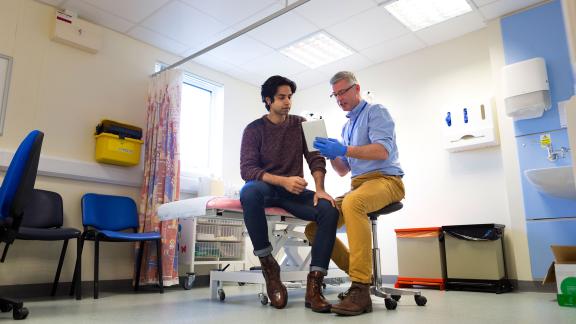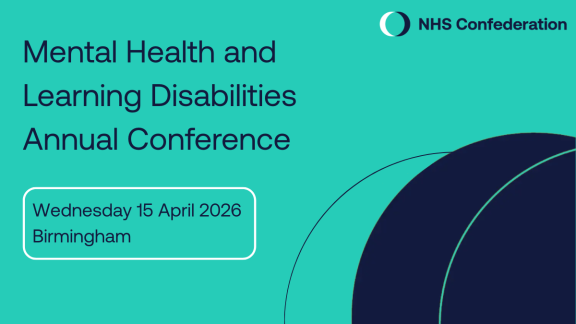Welsh NHS Confederation response to Post-EU funding plans

1. The Welsh NHS Confederation welcomes the opportunity to respond to the Finance Committee’s consultation on post-EU funding arrangements.
2. The Welsh NHS Confederation represents the seven Local Health Boards, three NHS Trusts, Digital Health and Care Wales and Health Education and Improvement Wales (our Members). We also host NHS Wales Employers.
Introduction
3. Our members have welcomed the announcement of replacement monies for EU structural funds, recognising the benefits which the previous funds had in supporting and regenerating local communities throughout Wales. Members have expressed the potential opportunities which could result from the effective use of the replacement funds, when targeted at communities most in need. However, they have raised a number of concerns which could act as barriers for the funds achieving their stated aims in Wales.
4. The UK-wide interventions put forward by the UK Government include the UK Community Renewal Fund, The UK Community Ownership Fund, the Plan for Jobs, the Freeports programme, the UK Infrastructure Bank and the UK Shared Prosperity Fund (UKSPF). These all seek to complement the wider ‘Levelling Up’ agenda to address geographical disparities. However, the creation and delivery of these funds in relation to the devolved nations brings with it a different dimension and one which has already been the subject of much debate.
5. The need to ‘level up’ across the UK has featured heavily in political discussions over the last few years. With different parts of the country facing unique issues when it comes to delivering health care, it is vital that the Welsh Government work with the UK Government to ensure that the strategic priorities for NHS organisations in Wales are considered as part of the Levelling Up agenda.
The role of the NHS
6. The funds listed by the consultation (the UK Shared Prosperity Fund, the Community Renewal Fund; and the Levelling Up Fund) have stated that local authorities will be given a lead role in relation to funding, depending on the mechanism being used by each particular fund i.e bid or allocation. However, it must be recognised that the NHS in Wales plays a key role in the post-pandemic economic and community recovery and the creation of a more equitable society, outside of the direct health response. To this end, we would strongly recommend that local authorities in their lead role should engage fully with health boards, and wider NHS partners, around the use of post-EU funding.
Economy and Regional Investment
7. Our briefing, Health, wealth and wellbeing: The NHS’ role in economic and social recovery, highlights the important part the NHS plays in local economies as an anchor institution and in supporting economic recovery post-pandemic. The NHS represents a significant proportion of the foundational economy and as such has the ability to use its spending power to affect economic change. This could be harnessed through the effective use of post-EU funds, particularly the Shared Prosperity and Levelling Up Funds, whose driver is to address geographical inequalities and create prosperity across the UK.
8. It is also worth noting that the written statement from the Economy Minister, dated April 13, indicates that there will be alignment between the Shared Prosperity Fund allocations and the Welsh Government’s Framework for Regional Investment. This alignment could create a consistent direction for the use of the fund and one that is underpinned by the Well Being of Future Generations Act, ensuring a holistic view is taken of population need in relation to required investment. Again, the NHS has a unique role in supporting the vision laid out in the framework in ensuring a healthy population.
9. The socio-economic role of the NHS in Wales should be recognised through consistent engagement with local health boards to inform the direction of the funding in local areas. This could allow the service to fulfil this role more effectively and play an active part in the visions set out in by the Levelling Up agenda and the Framework for Regional Investment.
Population Health
10. Tackling the wider determinants of health will be crucial for the ‘Levelling Up’ agenda to be a success. At a simple level, it is about addressing regional inequality, and the NHS should feature heavily in those discussions.
11. While COVID-19 has revealed and exacerbated pre-existing health inequalities, there have been many detailed and well-evidenced reports on health inequalities in recent years, including the Welsh Health Equity Status Report initiative, Placing health equity at the heart of the COVID-19 sustainable response and recovery (Public Health Wales and Welsh Government). These reaffirm the need for coherent, coordinated activity across all delivery partners to tackle health inequalities. Also, our Health and Wellbeing Alliance noted in its paper Making the difference: tackling health inequalities in Wales, “Tackling health inequalities is not in the gift of any one body or organisation, and while high-quality, responsive health services are an essential component, the NHS alone cannot deliver the change needed”.
12. Socio-economic disparities also have a direct impact on NHS costs, with Public Health Wales having recently found the average annual cost of health service provision was generally higher for those living in our more deprived communities. The report found that preventative action targeted at improving the health equity between advantaged and disadvantaged communities and their timely access to health services could help reduce a £322 million healthcare gap.
13. It is welcomed that the positive impacts that addressing issues within population health and wellbeing are recognised in both the Levelling Up prospectus and the Welsh Government’s Regional Investment Framework. We note that addressing health disparities is a mission within the Levelling Up agenda and so these funds could represent an opportunity to create a strong cross-sector approach in the delivery of population health interventions.
Research
14. There is still ongoing uncertainty around the UK’s association with Horizon Europe, due to the ongoing negotiations over the Northern Ireland Protocol. The UK Government’s announcement of an extension to the ‘financial safety net scheme’ is welcome, however it is unclear what will happen beyond the scheme’s guarantee for awards expected to be signed by the end of December 2022.
15. The NHS is a significant employer and partner in research and development, and it is important that clarity is given on the future of this relationship as it relates to the NHS’ economic role. It also forms a part of the UK Government’s Levelling Up agenda through the establishment of the UK as a “science superpower”.
Concerns
16. Many of the concerns expressed by our members have arisen due to the position and mechanisms of the devolved administrations in the creation and delivery of the new funds. Some have expressed concern that the funding isn’t going directly to the Welsh Government to make strategic decisions and enable them to use the cross-sector structures that we have established in Wales, such as Public Service Boards and Regional Partnership Boards. The delivery of the funds could also add additional complexity and possible duplication for our members, as opposed to using pre-established mechanisms already operational in Wales, and it could risk the ability for organisations to apply for funding for larger scale projects that span more than one geographical area.
17. There were also concerns that the distribution of funding could not be linked to population need and may not target those communities most affected by inequality and deprivation. With a loss of decision-making, it could make it more difficult for the Welsh Government to deliver on its own strategic aims and ambitions, with efforts potentially duplicated.
18. Despite the good intentions of these funds and the wider Levelling Up agenda, it could potentially create a much more complex landscape for our members and may not be conducive to the NHS fulfilling its role across the issues highlighted in this response.
19. Finally, our members have raised concern about the level of funding available in Wales compared to the funding received when we were part of the EU. It is clear that the size of the population relative to the land mass means that any population-based allocation, leaves Wales with a lesser share of the funding. Without this support, it would also make it difficult for the Welsh Government to deliver for all of the population on major infrastructure investment schemes with its borrowing limit of £1bn. Our members have reiterated that there must be a fair distribution of funding linked to need.
Conclusion
20. The Welsh NHS Confederation believes the post-EU funding as designed by the UK Government does represent an opportunity to help address deep-rooted inequalities in our society, if effectively used. However, consistent engagement must be undertaken with the NHS to achieve this on a local level and to fully utilise the NHS’ capabilities to address health and economic inequity.
21. There must also be alignment between the UK and Welsh Government strategies, to be achieved through substantial inter-governmental communication, to avoid complexity entering the post-EU landscape and ensure there is no duplication of efforts to address what is ultimately a positive goal and outcome.
22. Members look forward to engaging with Local Authority partners going forward and would urge the UK Government to issue guidance early (for the UK Shared Prosperity Fund) and ensure that this is clearly articulated so that time can be focused on developing effective, value for money projects that support the overall health of the population.



